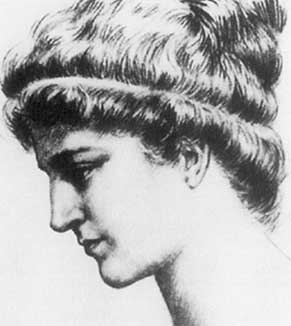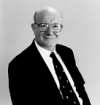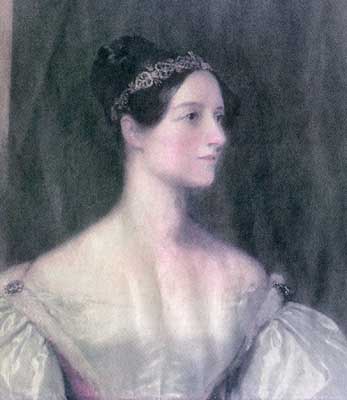|
Hypatia of Alexandria (d. 415)
|
|
|
 |
I can't swear that this is actually an image of Hypatia of Alexandria, but
it has been used as such elsewhere and thus I appropriate it. Hypatia is an anti-Martyr,
who died of being insufficiently Christian at a time when such an affliction was becoming
increasingly perilous. She was also however a scholar and scientist of note, unlike many
Christian female martyrs, whose greatest contribution to the world often seems to have
been a valiant bid to win a nomination for the early Darwin awards. |
|
|
According to the Suda, a Byzantine encyclopaedia, Hypatia was
the daughter of the last curator of the Museum of Alexandria. An astronomer, mathematician
and philosopher, she was far from the Christian ideal of womanhood, which at the time
basically involved being quiet. Blamed - probably erroneously and quite possibly on the
usual grounds of sorcery - for friction between Bishop Cyril and the prefect Orestes of
Alexandria, Hypatia made a useful and fairly apolitical target for Christian charity and
forgiveness. She was beaten up in the street, dragged into a church, mutilated with broken
tiles and finally burned (although the last was almost certainly posthumous) by a pack of
rampaging monks set on spreading a little of Christ's love. |
|
|
Colin, Lord Renfrew (1937- )
|
|
|
 |
One of the founding fathers of modern archaeology, Professor Colin, Lord
Renfrew is a highly distinguished academic. I studied Archaeology at Cambridge, and was
lucky enough to hear Professor Renfrew lecture, and while his areas of study differed from
my interests, he was always fairly entertaining. He would often cancel early morning
lectures without notice to go and run the country (or at least attend sessions of the
House of Lords), which did little to endear him to tired and ill-tempered students at 9am,
but he was a character, regardless of his rabid conservatism.. |
|
|
He wrote the book on archaeology; literally. Renfrew and
Bahn's Archaeology: Theory, Method and Practice is the standard text book in British
archaeology, and very useful I found it for blagging my way through essays when the MPhils
had swiped all the other books from the library. For all of his undoubted greatness
however, I include Lord Renfrew for two other reasons, both relating to possibly
apocryphal stories.
Firstly, he is in full Andrew Colin, Lord Renfrew of Kaimsthorne FBA. Kaimsthorn, I am
told, does not exist, but is merely a name invented to give Him somewhere to be Lord
Renfrew of, and thus to distinguish him from some other Lord Renfrew. Secondly, he is said
to have been politely asked to resign his post as Master of Jesus College after he caused
considerable damage by dancing on the tables at the Master's Feast; at the age of
sixty-five. |
|
|
Alan Turing
|
|
|
 |
Let's face it. I work in the Computer Learning Research Centre; Turing was
going to intrude upon my consciousness at some point. It isn't for his contributions to
computer science, nor his cryptoanalytical work during WWII that I include him however,
impressive though his achievements were. Instead, he finds his way into this list for
writing a scientific article in which - in sincerity or sarcasm - he suggests the use of a
telepathy-proof room as part of an experimental set-up. Kudos to that man. |
|



